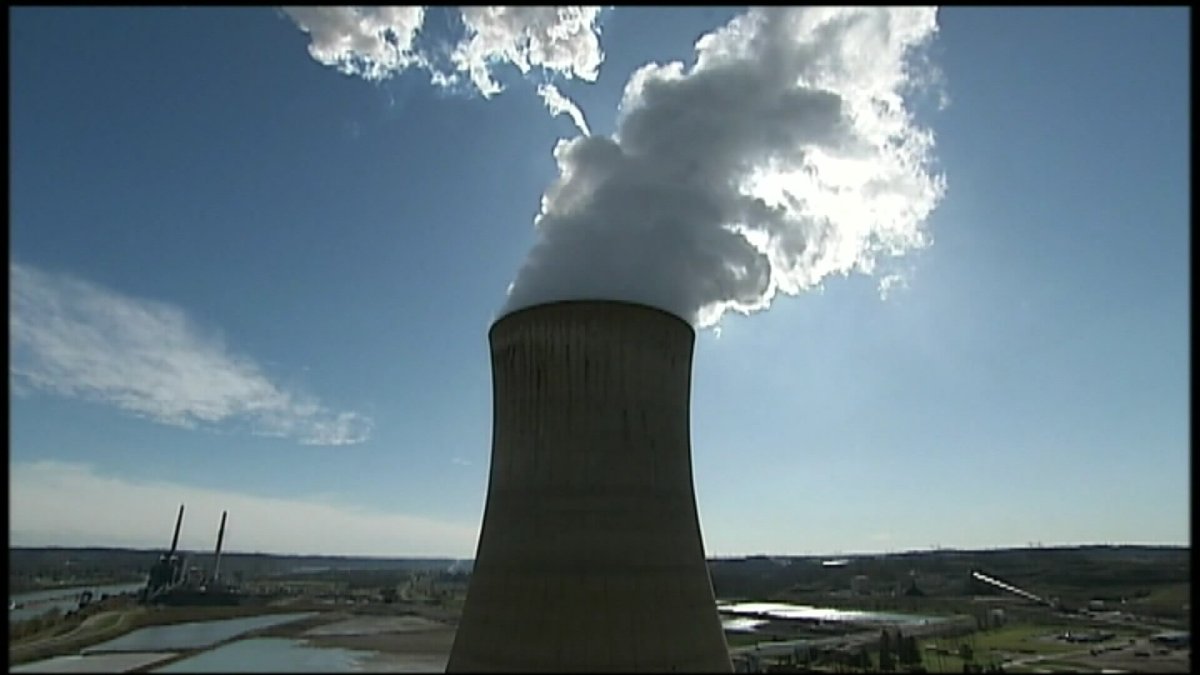Just a few hours after Ottawa announced it will phase out coal-fired energy by 2030, Environment and Climate Change Minister Catherine McKenna will be in Halifax for a second announcement Monday.

READ MORE: N.S. wins deal to use coal-fired plants past new federal deadline of 2030
At 2:30 p.m. AT McKenna will join Nova Scotia Premier Stephen McNeil for an announcement about “Nova Scotia’s progress on climate change,” according to a release.
There is no more information about the announcement, but the province has been advocating for an exemption from the federal government’s carbon pricing ultimatum made in early October.
READ MORE: Nova Scotia wants recognition of its emissions reductions in carbon pricing plan
It’s also been trying to negotiate a renewed equivalency agreement with the federal government for its coal-fired electricity plants.
READ MORE: Nova Scotia ‘will not be implementing a carbon tax,’ McNeil says
An equivalency agreement negotiated under former prime minister Stephen Harper made Nova Scotia exempt from federal coal-fired plant regulations as long as the province reached certain targets for reducing greenhouse gas emissions. That agreement expires in 2019.
59 per cent of Nova Scotia electricity comes from coal
Nova Scotia Power Inc. (NSPI) operates four coal plants which make up 59 per cent of electricity used in the province. NSPI’s goal is to reduce coal usage to 38 per cent by 2020.
By 2020, the biggest leap in renewable energy sources is expected to come from hydro and tidal power. Currently, two per cent of Nova Scotia’s energy comes from tidal and hydro power, by 2020 its projected to make up 20 per cent of the province’s electricity.
READ MORE: Donkin, N.S., coal mine set to reopen this summer
Three of the province’s coal plants are based in Cape Breton at Lingan, Point Aconi, and Point Tupper. The fourth plant is on the mainland in Trenton.
In 2007, 76 per cent of Nova Scotia’s electricity came from burning coal.
According to filings with the province’s Utility and Review Board, NSPI planned to operate all four coal-fired plants into 2040.
The summer 2016 filing doesn’t give a retirement date for the coal-fired plants, only saying they will operate beyond 2039. A footnote on the filing says units that are scheduled to retire after 2039 were not given a firm retirement date because it is beyond the “planning horizon.”
- Life in the forest: How Stanley Park’s longest resident survived a changing landscape
- Bird flu risk to humans an ‘enormous concern,’ WHO says. Here’s what to know
- Roll Up To Win? Tim Hortons says $55K boat win email was ‘human error’
- Election interference worse than government admits, rights coalition says




Comments